What’s Really Happening in Messinia?
The Olympic elite, Hollywood’s finest, the...
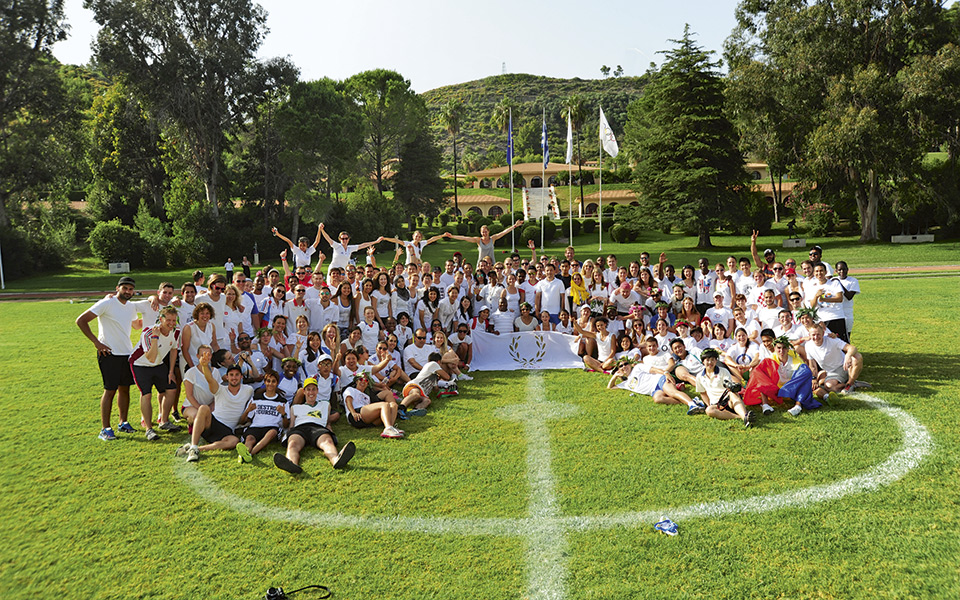
The International Olympic Academy brings together people from all over the world in a spirit of friendship and cooperation. Countless “family photos” such as this, full of youthful energy and positive spirit, have been taken on its premises.
Located at the foot of the Kronos Hill in ancient Olympia, where Greek mythology meets modern sports history, the International Olympic Academy has been propagating the ideals of the Olympic movement since 1961, through training courses, international conferences and seminars organized at its spacious, 90,000m² facilities on a verdant hillside close to the ancient stadium. For, as stressed by the visionary Baron Pierre de Coubertin – whose heart rests in the commemorative stele erected at ancient Olympia – the Olympic ideal is based on two pillars: sports and education.
The history of the International Olympic Academy began in 1927 when Coubertin held a meeting with his associate Ioannis Chrysafis – one of Greece’s first gymnasts and a pioneer of school athleticism – and elaborated his vision for the creation of an academic study center for the Olympic movement.
The sudden deaths of both men meant the plan was never implemented, but the task was subsequently undertaken by a student of Chrysafis, Ioannis Ketseas, a track and tennis champion and secretary of the Hellenic Olympic Committee (HOC), together with the German Karl Diem, a close friend of Coubertin and a high-ranking sporting official, who later organized the controversial Berlin Games in 1936.
The initial plan of operation for the IOA was drafted in 1938 and the new organization was placed under the aegis of the IOC during its 39th session. A major obstacle was raised by World War II, however, and not until 1949 was establishment of the Academy approved by the 44th session of the IOC, which tasked the Hellenic Olympic Committee with its organization and operation.
“Our ancestors believed that putting emphasis on the performance of an athlete was not in tune with the ideals of athleticism and, therefore, they never kept such a record, even though there was a system for assessing the athletes. ”
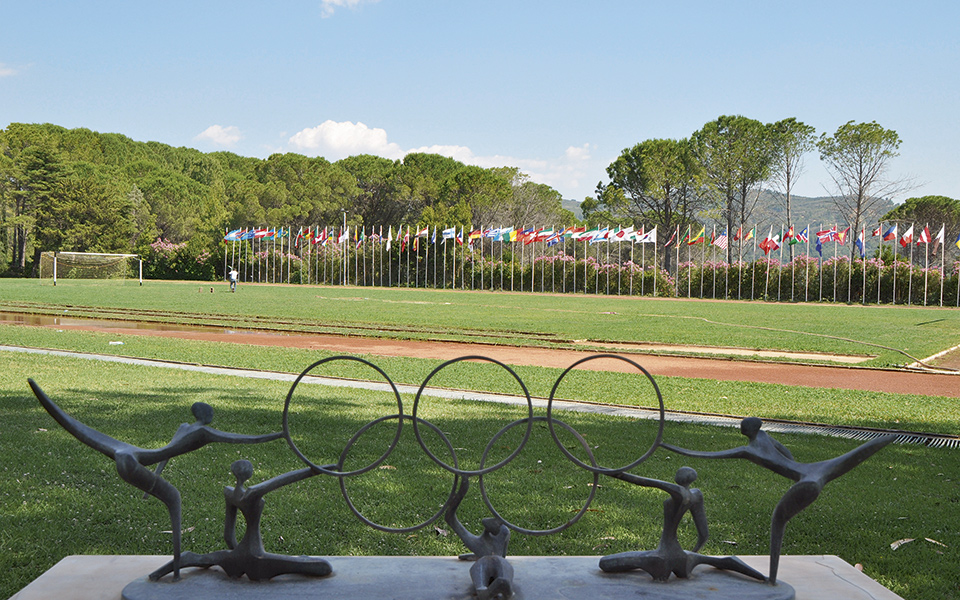
The outdoor space of the facilities also operates as an open-air sculpture museum.
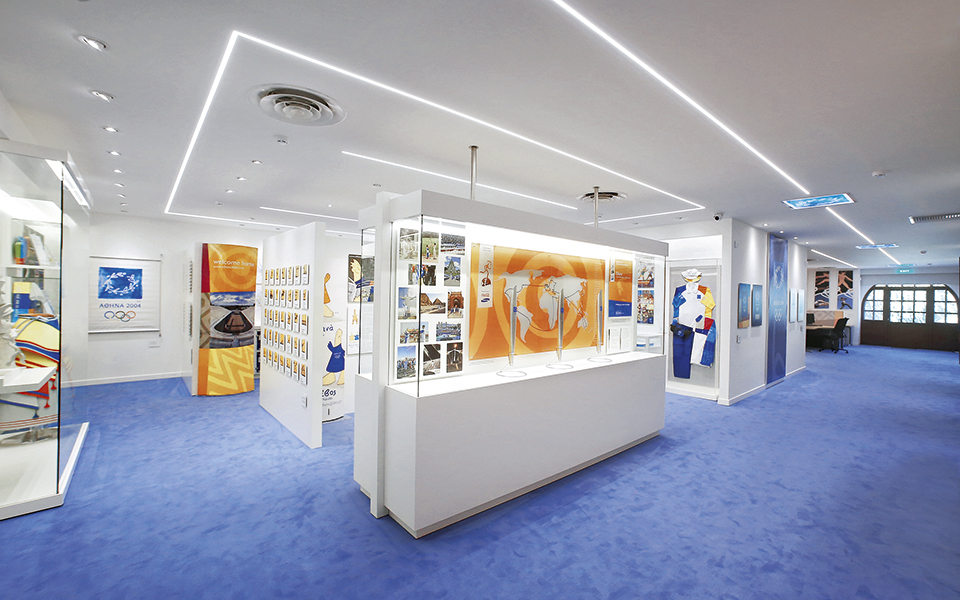
Since October 2014, the IOA has been hosting the historical archive of the Organizing Commitee of the Athens 2004 Olympic Games.
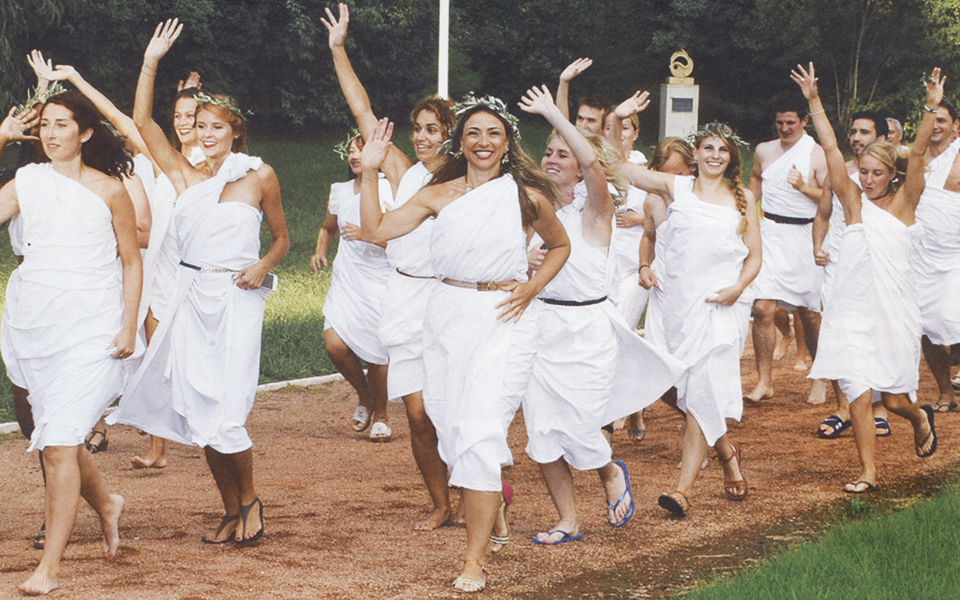
Postgraduate students participating in the 22nd International Seminar on Olympic Studies in ancient Olympia, 2015.
In 2013, the IOA took action to retain Greco-Roman wrestling on the Games’ program: 150 athletes from 15 countries came together to compete under the light of the full moon, sending a message about the ancient ties that bind wrestling with the Olympic Games.
It took another 12 years of intense efforts to inaugurate the Academy, an event that coincided with the opening ceremony for Olympia’s ancient stadium – excavated on Diem’s initiative.
In its early years, times were hard and the Academy’s activities were confined to the International Session for Young Participants, who stayed in tents and attended sessions held under pine trees at the foot of Kronos Hill. The first buildings were constructed in 1967, while the conference center was not completed until 1994.
In recent years, IOA authorities have been serving the vision of Coubertin, with the help of the IOC, and are keeping the flame “alive.”
“The Academy is a unique beacon of the Olympic Movement for education and culture around the world,” says IOA President Isidoros Kouvelos. “As Greeks, we are fortunate to host it in our country. We must all unite our forces to keep it [the beacon] alight and strong.”
Despite a devastating fire in 2007, the area where the IOA facilities are located is green. Among the trees that keep the noise of modern life at bay, there are grounds, classrooms and hostels for the accommodation of guests and athletes. Apart from the educational work it has undertaken, the Academy also supervises the 150 Olympic National Academies.
The training program at the Academy aims to raise awareness about Olympic values among young people through international conferences and seminars – some held annually, others every two years.
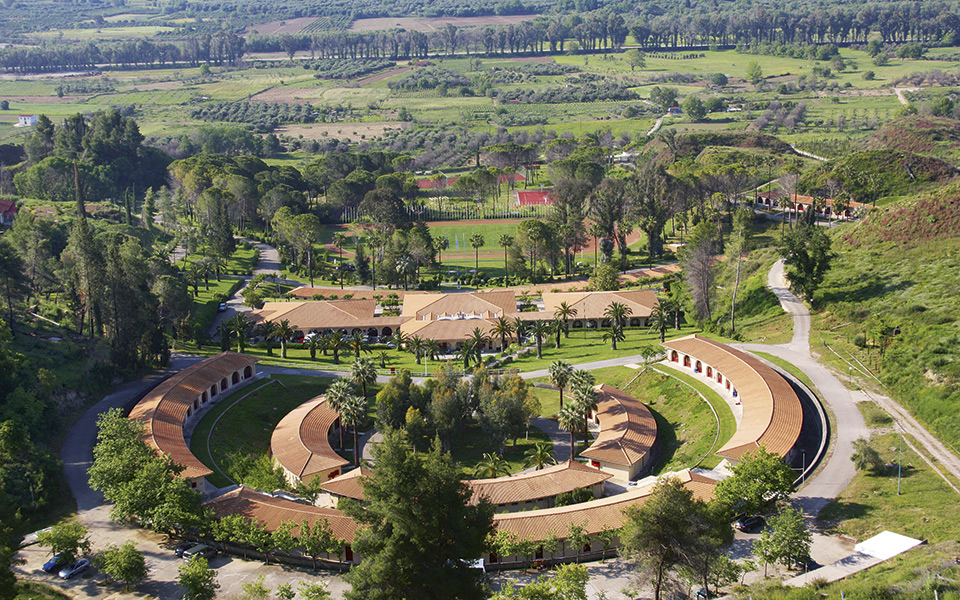
The IOA campus, owned by the Hellenic Olympic Committee, is situated a few hundred yards from the sacred site of ancient Olympia. The grounds sprawl over 90,000m2 of beautiful, green, hilly countryside.
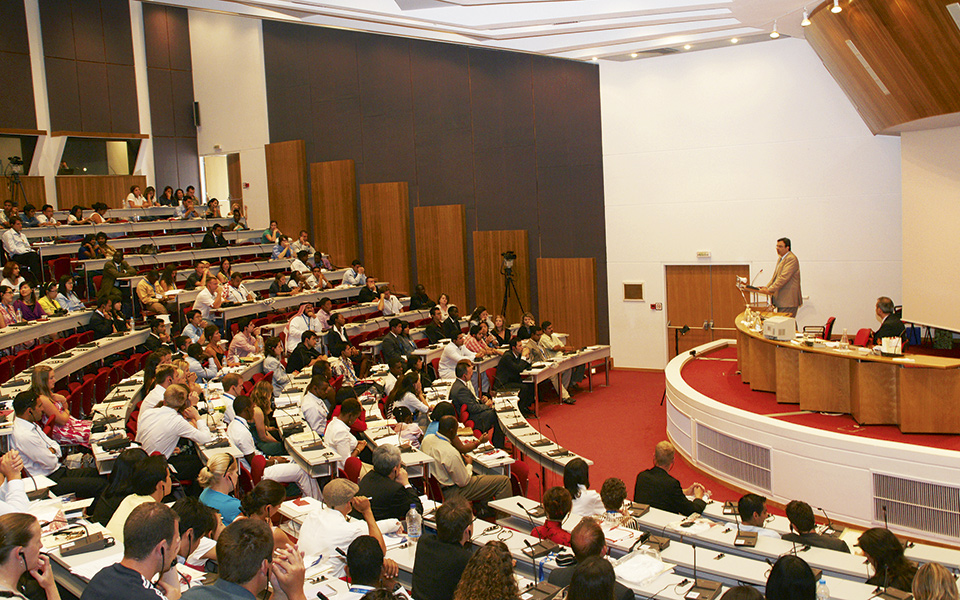
The state-of-the-art amphitheater, named after Dimitrios Vikelas, can host 450 persons while providing simultaneous translation in eight languages.
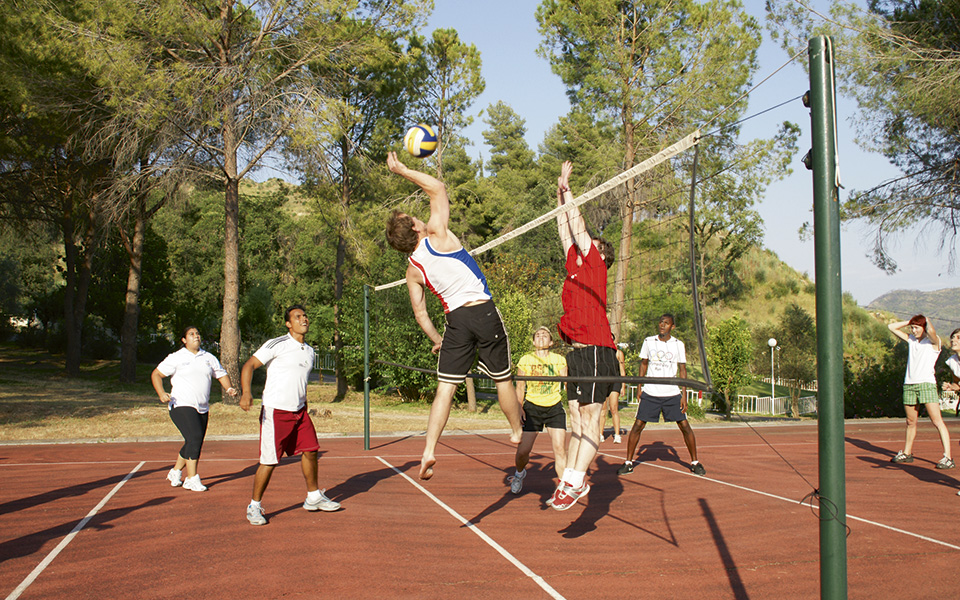
Sports facilities offer opportunities for some fun and games between lessons.
Since 2009, an Olympic post-graduate program comprised of at least three six-month semesters has been offered in collaboration with the University of the Peloponnese and private sponsors. Indeed, the program’s subject matter makes it unique in the world at a Masters Degree level.
After a rigorous selection process, the IOA accepts 30 students from around the world. Courses, examinations and other work are conducted in English. The program’s aim is to nurture tomorrow’s sports scientists, who will undertake the task of organizing and managing the Olympic Games and other major sporting events, as well as to promote Olympic Education.
“The first year we were 36 students and only six of them were from Greece. We became a multicultural group. Even today I remain in contact with some of the students,” says Spyros Trikaliotis, one of the first graduates.
The International Session for Young Participants also plays an important role. More than 150 children from 90 countries are hosted on the IOA premises for 15 days, attending lectures by distinguished academics on contemporary issues relating to the Olympic Movement. The symposium Sports, Society and Culture is also hosted in collaboration with Harvard University’s Center for Hellenic Studies.
“Young people who come to Olympia feel closer to the Olympic ideal because they are in the area where it all started,” says IOA director Dionyssis Gangas. “It is a beacon of knowledge that Greece has, essentially, yet to exploit. For our country it is a comparative cultural-educational advantage.”
“As Greeks, we are fortunate to host it in our country. We must all unite our forces to keep it [the beacon] alight and strong.”
Athens Offices: International Olympic Academy, 52 Dimitrios Vikelas Avenue, Halandri
• tel (+30) 210.687.88.09-13, (+30) 210.687.88.88